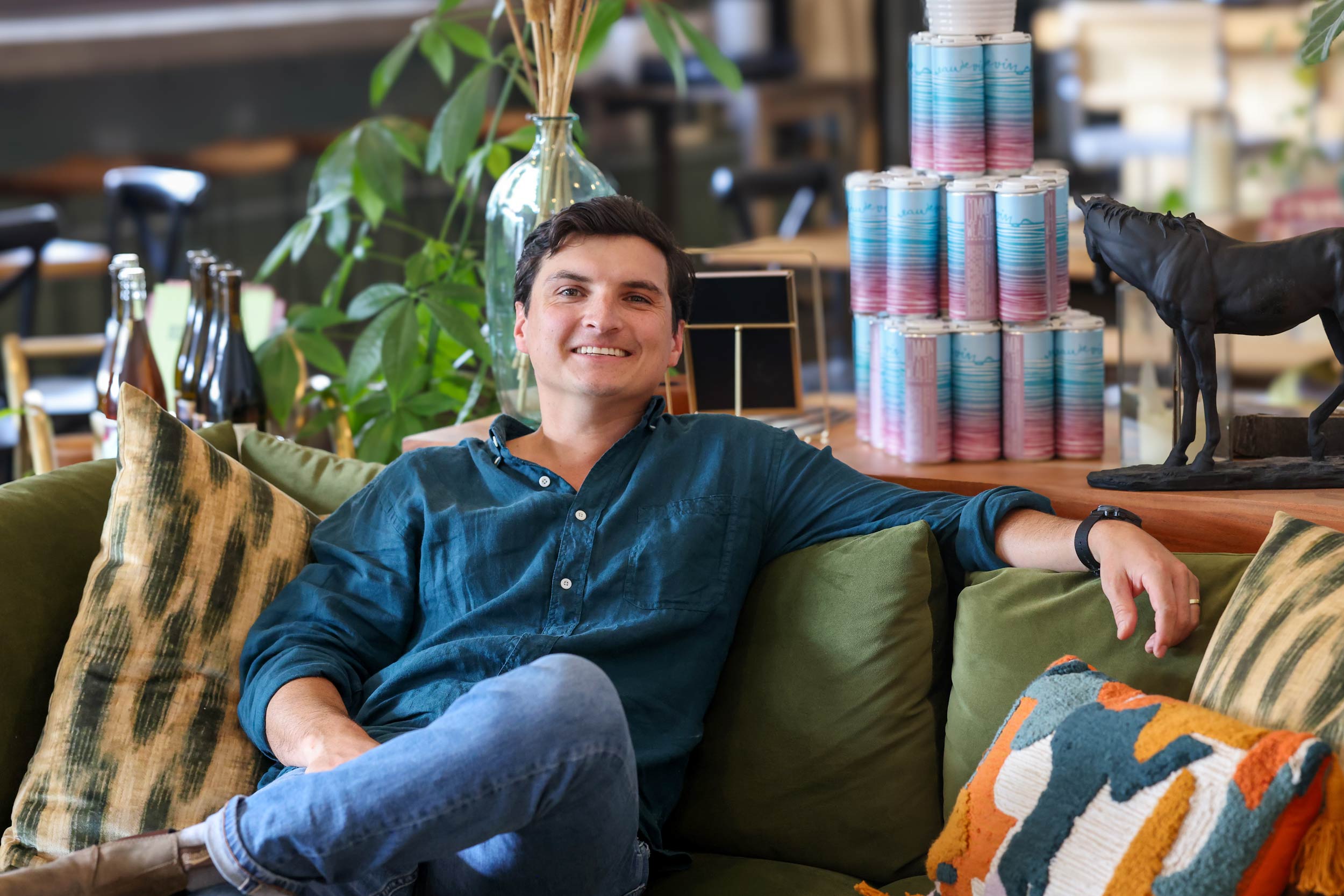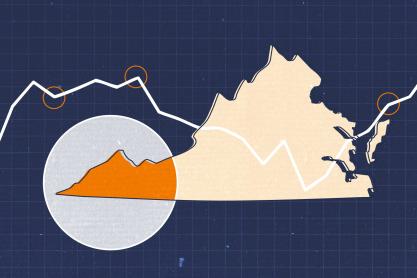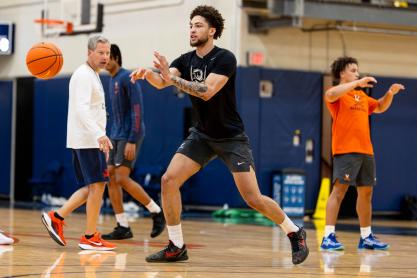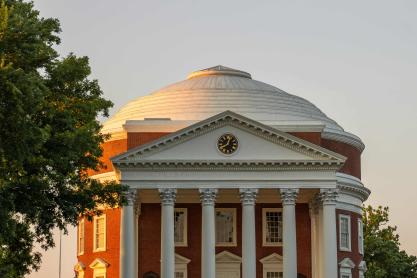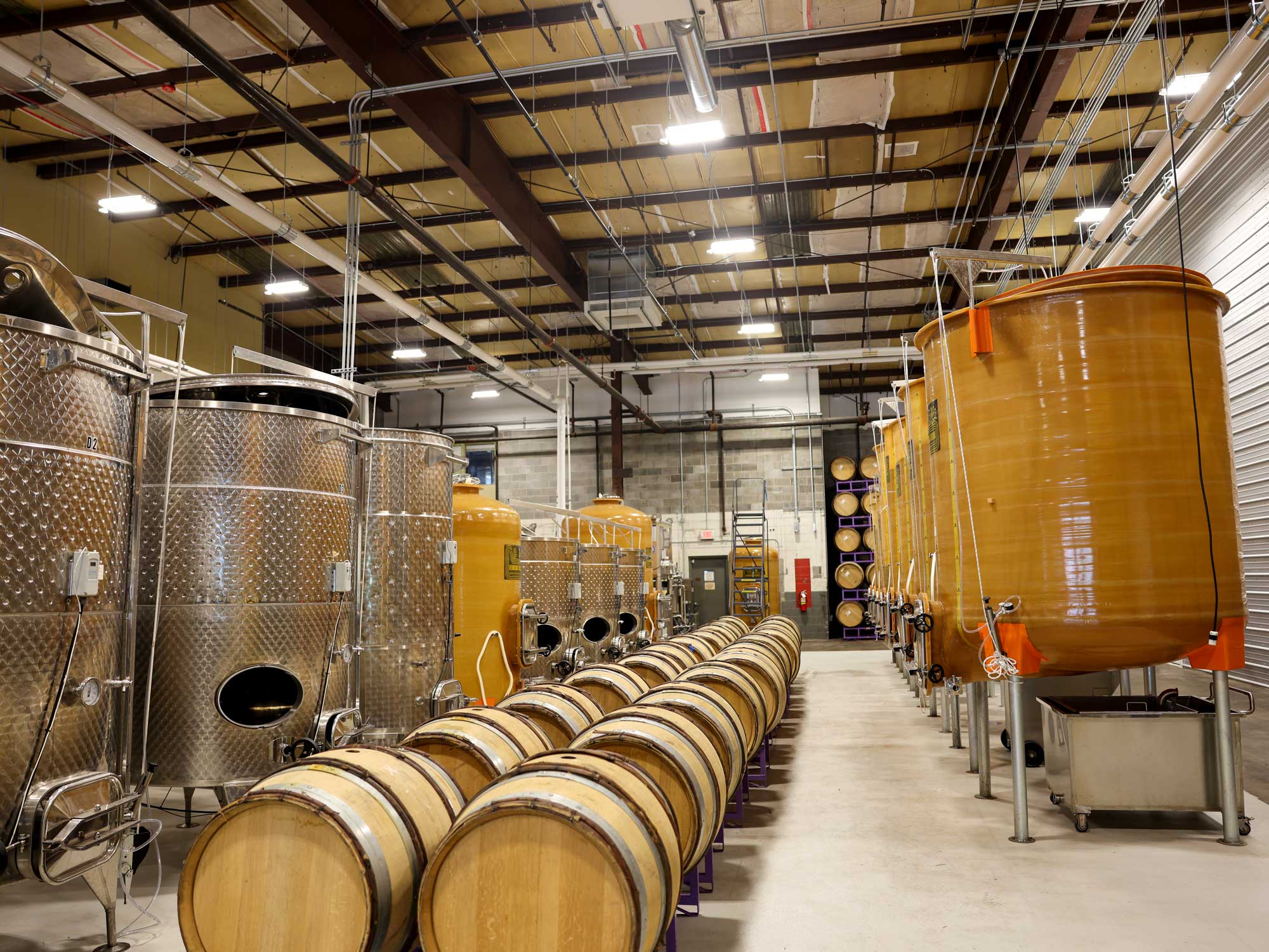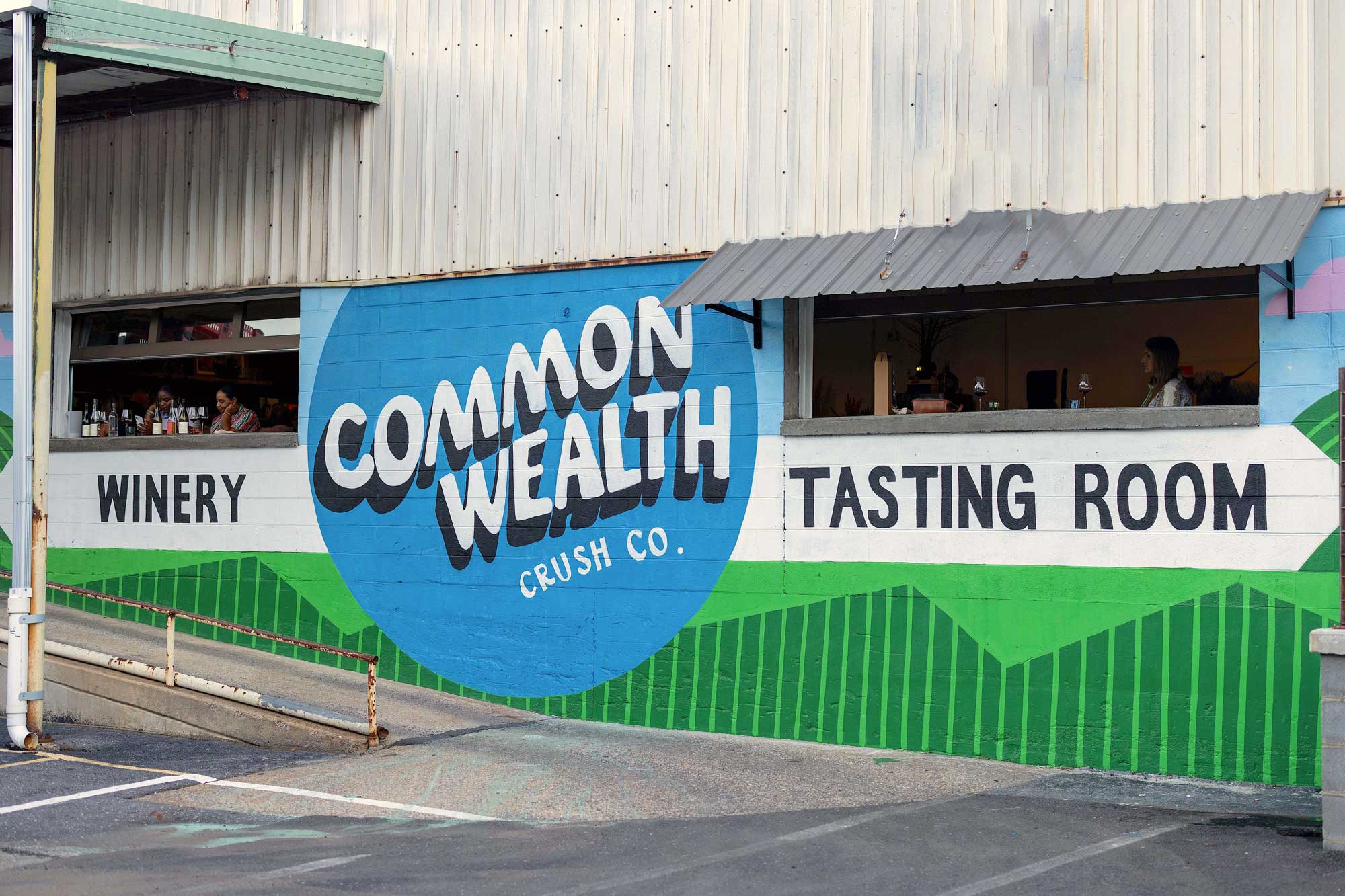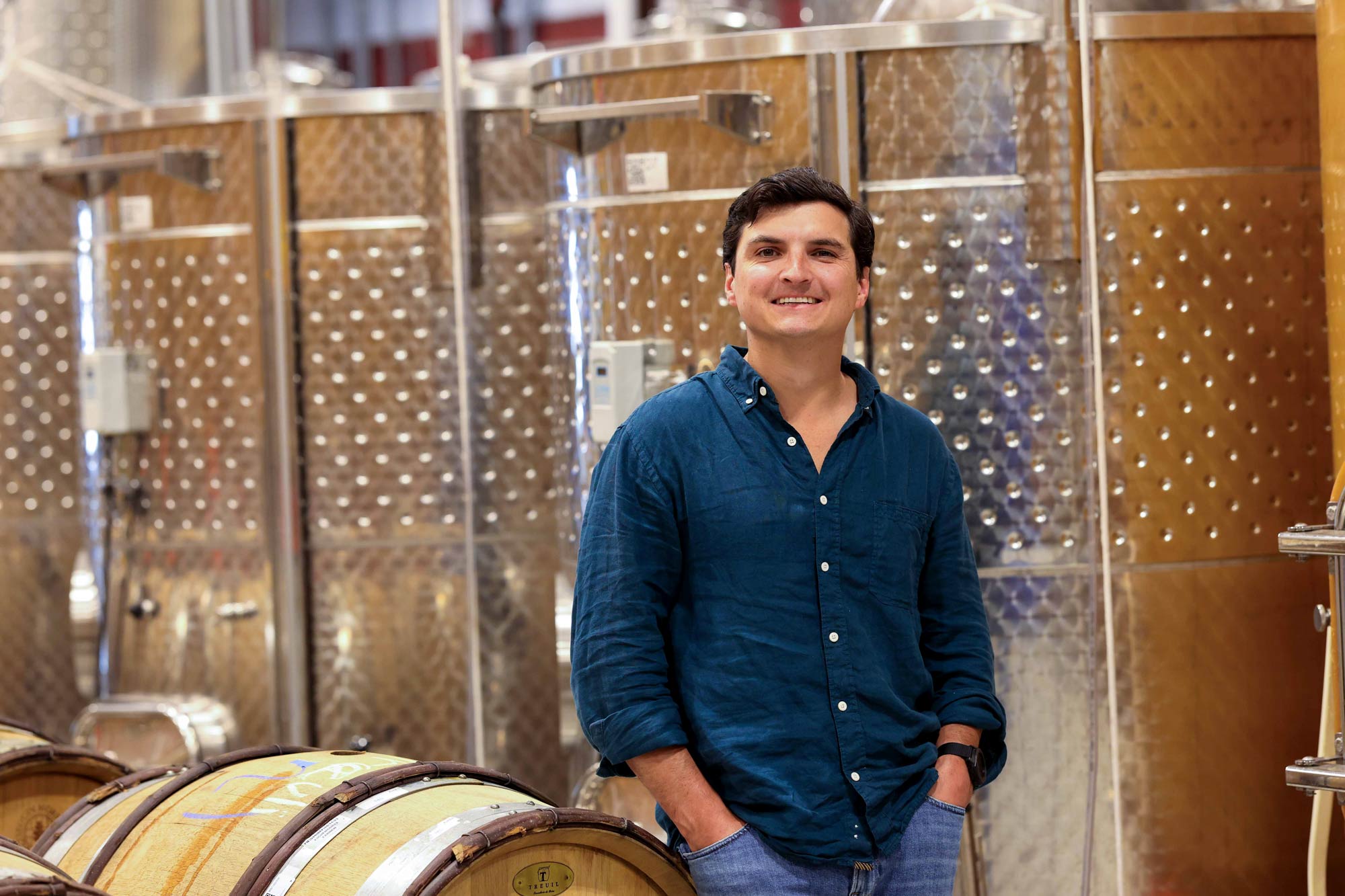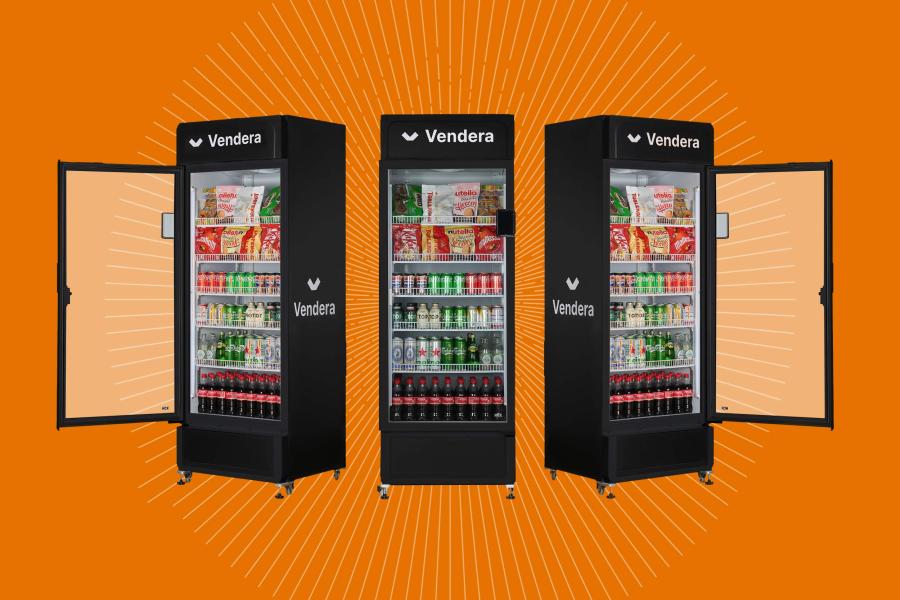But the industry’s financial and technical knowledge requirements leave many would-be winemakers dreaming of grape possibilities, but unsure how to bring them to fruition. That’s where Eagan, co-founder of Waynesboro-based Common Wealth Crush, comes in.
Since graduating from the Darden School in 2021, Eagan has helped build Common Wealth Crush into the first-of-its-kind facility in the Shenandoah Valley. The team consults with new growers and provides production capacity for emerging and established winemakers to usher their grapes from vines to wines. As the name implies, the team hopes to generate common wealth for all its makers.
“Patt had a vision for himself,” said Marc Lipson, the Robert F. Vandell Professor of Business Administration, whom Eagan describes as a friend and mentor.
Growing a Business
Located in the historic Virginia Metalcrafters building in Waynesboro, Common Wealth Crush offers vineyard and vintner services and serves as a support mechanism and sales channel for regional growers, as well as bottling wines under its own label.
The company also acts as a consultant for novices, from full-cycle service from vineyard to bottle. For established vintners, Common Wealth Crush processes grapes and assists as needed.
With the wine industry’s growth in recent years, Eagan and co-founding brothers Ben and Tim Jordan recognized a need for a multi-producer facility. Opening in 2022, the notoriously slow post-pandemic supply chain and the unpredictable renovation of a very old building complicated the company’s launch. For a while, they even borrowed electricity from their neighbors at Basic City Beer.
It was worth it. They hoped to process 6,700 cases of wine in their first year of operation, but did almost 11,000. In their second year, they hoped for 12,000 cases and produced almost 18,000.
“We built the capacity, and it’s been really gratifying to see the customers come in,” Eagan said.
For 2024’s harvest, nearly 20 different brands will be produced within the facility, some created by Virginia winemaking veterans and others dreamed up by newcomers to the industry.
Planting Seeds
Eagan didn’t start off dreaming of wine. As an 18-year-old undergraduate at the University of Richmond, Eagan thought he would major in music.
“I’ve played and written music my whole life, and I assumed music would be my professional path, in some way, post-graduation,” he recalled.
But he was curious about his business classes and ended up a business major. In his third year, Eagan studied abroad and met with his French cousins who operate a winery in the Champagne region. That’s where the wine bug bit him.
“I felt a magnetic pull toward it,” he said. “In retrospect, I think it was because it was a natural combination of all the things that I liked from business school, but it also engaged the art and philosophy side of my brain.”
On his first day of classes back in Richmond, a professor announced the Virginia Wine Marketing Office was offering an internship. Eagan applied and was selected.
Eagan accepted a job after graduation with the newly opened Early Mountain Vineyards, north of Charlottesville, where he met future partner Ben Jordan. After seven years, Eagan knew he wanted to further his education and ultimately launch a wine venture of his own, and applied to the Darden School.
Using the Darden Network
“He saw Darden as a vibrant community with much to offer a fertile and engaged mind,” Lipson recalled. “Darden does not impose its vision of success. It empowers everyone to be the best version of themselves possible.”
“Darden is as close an analogue to the real world as any academic experience I’ve ever had,” Eagan said. “The case delivery method you experience at Darden, and the intuition development and problem-solving ability that results, has been a game-changer in starting Common Wealth Crush.”
What’s Next
A year after graduating from the Darden School, Eagan reviewed with Lipson his company’s final financial model.
“The Darden community, both during and after the program, offers passionate but honest feedback, matched with a bias to act rather than just talk,” Lipson said.
In the past year, the team also opened its public tasting room, launched a direct-to-consumer wine club and expanded distribution to nine states. They started a new winemaker incubator program to bring fresh perspectives and launch the next generation of Virginia winemakers, particularly those from historically underrepresented groups.
“There were such radical changes in the first years: getting used to a new space, a new company, new processes and scaling production faster than anticipated,” Eagan said. “The coming year will be the first time where we can think, ‘OK, we’ve been here before.’”
